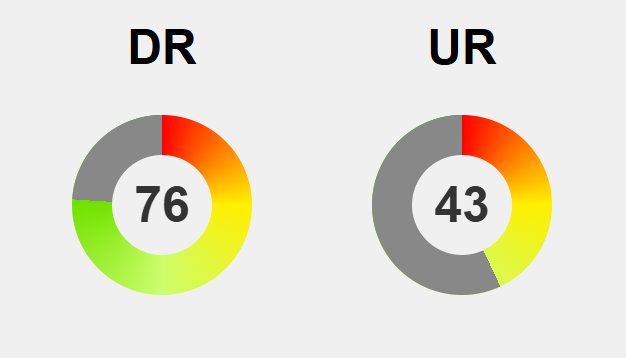Imagine a world where wealth and power are starkly divided, and the struggle between the working class and the elite defines societal change. Karl Marx’s revolutionary ideas dissect these inequalities, revealing how capitalism perpetuates exploitation through mechanisms like surplus value and class struggle. His critique, rooted in economic and philosophical insights, challenges us to look beyond surface issues and question the very foundations of private ownership and profit-driven motives. As history shows, movements inspired by Marx have sparked profound societal shifts, yet the path to true justice remains complex. Today, his analysis continues to illuminate contemporary disparities—whether in the wake of globalization, technological advances, or economic crises—prompting critical reflection: are we prepared to overhaul a system that concentrates wealth in the hands of a few? Marx’s enduring legacy urges us to reconsider what real change requires and how collective action can reshape the future toward greater equality.
Uncovering Society’s Power Dynamics Through Marx’s Revolutionary Ideas
Karl Marx’s ideas didn’t develop in isolation; they emerged from a mixture of economic critique and philosophical influence that shaped his understanding of society. He examined classical economists like Adam Smith and David Ricardo, appreciating their insights into value and production. However, Marx quickly recognized their limitations—particularly their failure to account for the social and power dynamics embedded within economic systems. To him, these economists overlooked who truly benefits from economic activity, focusing instead on abstract principles while ignoring underlying inequalities.
Alongside economics, Marx was deeply influenced by philosophy, especially G.W.F. Hegel’s dialectical method. Hegel emphasized that history progresses through conflict and contradiction, a concept Marx adapted into his materialist approach. Instead of ideas driving societal change, Marx argued that material conditions—such as economic relations—are the primary forces shaping history. This shift allowed him to focus on tangible, observable forces rather than abstract ideals, anchoring his critique in the real-world struggles of different classes.
Central to Marx’s thought is the idea of historical materialism. He believed that the economic base—the material infrastructure—determines the superstructure, including laws, politics, and culture. When the economic base shifts, it triggers profound changes throughout society. Marx saw class struggle, especially between the bourgeoisie (owners of production) and the proletariat (working class), as the engine of these transformations. He argued that history advances through these conflicts, which eventually lead to revolutionary change.
A key element in Marx’s critique is his labor theory of value. It states that the worth of a good is rooted in the labor required to produce it. Under capitalism, workers are paid less than the full value of what they produce, creating surplus value—an excess that capitalists claim as profit. This process of extraction, Marx argued, is the root of systemic exploitation, deepening inequality and concentrating wealth in the hands of a few. His theory exposed how capitalism sustains social injustice by enriching owners at workers’ expense.
Marx’s ideas were shaped by the upheavals of the industrial revolution, which created a new working class facing harsh conditions and low wages. His critique responded directly to these realities, aiming to reveal the systemic injustices built into the economic structure. He believed that understanding these foundations was essential for any meaningful effort to reshape society—an understanding that would fuel revolutionary movements aiming to dismantle the current order.
Throughout his work, Marx emphasized that economic relations are intertwined with social and political inequalities. The ruling class maintains power not just through wealth but by controlling institutions and ideas, shaping societal narratives to serve their interests. Recognizing this interconnectedness reinforced his belief that only a fundamental overhaul—one that challenges private ownership and redistributes power—could bring about genuine justice and equality.
Marx’s development as a thinker was a synthesis of economic critique and philosophical insight, offering a comprehensive view of society’s structure. His ideas continue to challenge us to look beyond surface issues and question the deeper power dynamics driving inequality. They remind us that real change requires understanding and transforming the underlying economic and social forces that sustain systemic injustice.
Foundations of Marxism: Economic Critique and Philosophical Influences
Karl Marx’s ideas didn’t appear overnight; they evolved through a careful synthesis of economic thought and philosophical influence. He examined classical economists like Adam Smith and David Ricardo, appreciating their insights into value and production. Yet, Marx quickly saw their limitations—particularly how they overlooked the social and power relationships embedded within economic systems. These economists focused on abstract principles, often ignoring who truly benefits from economic activity and how inequality is perpetuated behind the scenes.
Alongside his economic critique, Marx was deeply influenced by philosophy, especially G.W.F. Hegel’s dialectical method. Hegel emphasized that history moves forward through conflict and contradiction, a process Marx adapted into his materialist framework. Instead of ideas alone driving societal change, Marx argued that material conditions—like economic relations—are the primary forces shaping history. This shift allowed him to focus on tangible, observable forces rather than abstract ideals, grounding his critique in real-world class struggles.
At the heart of Marx’s thinking is the concept of historical materialism. He believed that the economic base—the material infrastructure—determines the superstructure, which includes laws, politics, and culture. When the economic base changes, it sparks profound shifts across society. Marx saw class struggle, especially between the bourgeoisie—owners of production—and the proletariat—the working class—as the engine of these transformations. He argued that history advances through these conflicts, ultimately leading to revolutionary change.
A key element in Marx’s critique is his labor theory of value. It states that the worth of a good is rooted in the labor required to produce it. Under capitalism, workers are paid less than the full value they create, generating surplus value—an excess that capitalists claim as profit. This process of extraction is the foundation of systemic exploitation, deepening inequality and concentrating wealth in the hands of a few. Marx’s theory exposes how capitalism sustains social injustice by enriching owners at workers’ expense.
Marx’s ideas were shaped by the upheavals of the industrial revolution, which created a new working class facing harsh conditions and low wages. His critique responded directly to these realities, aiming to reveal the systemic injustices built into the economic structure. He believed understanding these foundations was essential for meaningful social change—an understanding that would inspire revolutionary movements to challenge and dismantle the existing order.
Throughout his work, Marx emphasized that economic relations are closely linked to social and political inequalities. The ruling class maintains power not only through wealth but also by controlling institutions and ideas, shaping societal narratives to serve their interests. Recognizing this interconnectedness reinforced his conviction that only a fundamental overhaul—challenging private ownership and redistributing power—can lead to genuine justice and equality.
Challenging Capitalism: Evidence and Analysis of Marx’s Critique
Marx’s critique of capitalism is rooted in real-world examples that reveal how economic systems sustain inequality and exploitation. The Industrial Revolution stands out as a prime illustration, where factory owners amassed vast wealth while workers endured long hours, unsafe conditions, and minimal wages. These workers produced far more value than they received, generating surplus value that enriched the owners. Marx saw this as a textbook case of how capitalism benefits a small elite at the expense of the majority. Today, this pattern persists, with modern corporations making record profits while many workers face job insecurity, stagnant wages, and poor working conditions. These ongoing disparities underscore how capitalist systems continue to favor the wealthy.
Class struggle remains at the core of Marx’s analysis. He argued that the ongoing conflict between workers and capitalists is the driving force of societal change. Workers seek fair wages, better conditions, and dignity, while owners aim to maximize profits, often resisting reforms or suppressing wages. This tension fuels a cycle of inequality that Marx believed would eventually lead to revolutionary upheaval. The 2008 financial crisis exemplifies this dynamic, where the wealthy in the financial sector recovered quickly through bailouts and market gains, while ordinary people lost jobs and homes. Such disparities validate Marx’s claim that capitalism inherently breeds inequality.
A key element in Marx’s critique is the concept of surplus value. He explained that workers produce more value than they are paid, and this excess is seized by owners as profit. Over time, this process fuels capital accumulation, leading to greater disparities and wealth concentration among the few. The rich reinvest their earnings to generate even more wealth, trapping the working class in a cycle of low wages and limited mobility. This systemic extraction is not accidental; it’s embedded in capitalism’s very logic, designed to benefit those who control the means of production.
Global inequality trends further support Marx’s analysis. Today, a small fraction of the population controls a disproportionate share of wealth, while billions struggle with poverty and lack access to basic resources. Countries like the United States reveal a stark divide, with the top 1% holding a significant portion of wealth and middle- and lower-income groups facing rising living costs and stagnant wages. These patterns mirror Marx’s predictions: capitalism tends to centralize wealth and power, making systemic inequality difficult to address without fundamental change.
Critics argue that reforms like progressive taxation and social safety nets have mitigated some inequalities. However, these measures rarely challenge the core logic of profit maximization and private ownership. Marx maintained that meaningful change requires a revolutionary overhaul—dismantling private control of production and establishing collective ownership. History shows that reforms often fall short, reinforcing the need for deeper systemic transformation to truly confront inequality.
Despite these critiques, Marx’s analysis remains highly relevant today. His focus on how economic structures shape social relations continues to inform debates around income inequality, corporate influence, and workers’ rights. Trends like automation and the gig economy exemplify how capitalism adapts, often intensifying worker precarity and wealth concentration. His critique encourages us to look beyond surface issues and understand the systemic forces at play, emphasizing that genuine change must address root causes rather than symptoms.
For those interested in exploring alternative economic models that challenge traditional capitalism, resources such as this comprehensive overview of post-capitalist ideas can provide valuable insights. Understanding these alternatives can inspire new approaches to addressing inequality and fostering more equitable systems, making it worthwhile to consider different perspectives on economic organization. To learn more about these concepts, you can visit Post-Capitalist Models and Alternatives.
Marx’s Ideas in Action: Inspiring Modern Movements and Policy Shifts
Marx’s ideas continue to shape contemporary debates around economic inequality and social justice. His emphasis on class struggle and systemic injustice fuels a wide range of movements that challenge the concentration of wealth and power. Labor unions, grassroots organizations, and progressive political parties often draw on Marxist principles to advocate for higher wages, improved working conditions, and policies that promote fair resource distribution. These collective efforts highlight the importance of organized resistance in driving meaningful change.
Throughout history, Marx-inspired movements have sparked significant transformations. The Russian Revolution of 1917 aimed to overthrow capitalist and imperialist systems, leading to the establishment of the Soviet Union. Similarly, China’s communist revolution mobilized millions to challenge feudal and colonial structures. Revolutionary figures like Fidel Castro and Che Guevara used Marxist ideas to inspire struggles for independence and social equality across Latin America. These examples demonstrate how Marx’s critique of capitalism has historically served as a catalyst for profound political shifts.
However, translating Marx’s revolutionary vision into practice has proven complex. Many regimes claiming to follow Marxist principles faced challenges—sometimes trading one form of oppression for another. Critics argue that revolutionary movements can suppress individual freedoms and lead to authoritarian rule, especially when elites resist losing their privileges. The interconnectedness of global markets and multinational corporations complicates efforts to reform, often externalizing economic pressures that hinder systemic change.
Despite these hurdles, Marx’s influence persists in policy discussions worldwide. Progressive taxation, social safety nets, and wealth redistribution initiatives echo his call for reducing economic disparities. Increasingly, governments and organizations recognize that superficial reforms are insufficient; they seek deeper systemic restructuring. This shift underscores an understanding that true justice requires dismantling the core mechanisms of private ownership and profit-driven motives.
Grassroots activism remains vital in maintaining momentum. Workers’ movements and community organizations push for stronger collective bargaining rights and policies that empower marginalized communities. Supporting universal healthcare, affordable housing, and access to quality education aligns with Marx’s vision of addressing structural inequalities. These efforts work to redistribute power and resources, fostering a more equitable society rooted in collective well-being.
Education and awareness play crucial roles in translating Marx’s critique into practical action. Community organizing, online platforms, and academic programs help foster understanding of systemic issues. By connecting theory to everyday struggles, these initiatives inspire new generations to question the status quo and advocate for change. This ongoing engagement keeps Marx’s ideas relevant and adaptable to today’s challenges.
While implementing Marx’s revolutionary ideals in full may remain aspirational, his critique continues to challenge us to look beyond surface problems. His emphasis on systemic roots encourages activism, policy reform, and the reshaping of power structures. As global inequalities deepen, his call to question and transform the economic system remains a powerful blueprint for building a fairer, more just future.
Looking Ahead: The Enduring Relevance and Future of Marx’s Revolutionary Vision
Marx’s revolutionary ideas continue to resonate today, offering vital insights into ongoing struggles against economic inequality and social injustice. His emphasis on class conflict and systemic injustice reminds us that the fight for fair wealth distribution and genuine power remains far from over. As globalization, technological change, and environmental crises reshape the landscape, his analysis helps us understand how current economic systems often deepen disparities rather than resolve them. Recognizing these patterns encourages a critical approach to reform—urging us to look beyond surface issues and question the deeper forces at play.
While some of Marx’s specific predictions haven’t materialized exactly as he envisioned, his core principles remain profoundly relevant. His focus on the relationship between economic structures and social relations pushes us to see beyond superficial fixes. Today’s widening wealth gap, driven by multinational corporations and financial markets, echoes Marx’s warning that capitalism tends to concentrate wealth in the hands of a few. This awareness fuels calls for systemic changes—ones that challenge the very foundations of private ownership and profit motives rather than just patching up the symptoms.
Advances in technology and automation introduce new complexities to Marx’s critique. As digital platforms and artificial intelligence reshape labor markets, a small tech elite often benefits while many workers face precarity and job insecurity. These trends highlight the importance of his ideas on surplus value and elite domination, reminding us that economic transformation must adapt to new realities. Addressing these issues requires both innovation and a willingness to challenge the existing power structures that perpetuate inequality.
Understanding class struggle and systemic injustice remains central because they expose the roots of persistent disparities. Marx’s critique urges us to see beyond individual incidents and recognize the systemic forces that sustain inequality. This perspective fuels activism, policy debates, and collective efforts aimed at dismantling entrenched power. It emphasizes that meaningful change hinges on challenging the economic and social foundations that uphold privilege and oppression.
Looking ahead, embracing Marx’s insights can inspire new approaches to building a fairer society. Movements advocating for wealth redistribution, universal healthcare, climate justice, and workers’ rights draw strength from his principles. While revolutionary upheaval isn’t the only path, his ideas continue to motivate efforts to question and reshape the structures of power. By engaging critically with these concepts, we can better navigate the complexities of today’s world and work toward a future rooted in equality and collective well-being.
Despite the challenges, the core message of Marx’s critique remains a powerful tool for change. It reminds us that superficial reforms are insufficient on their own. Instead, sustained activism, thoughtful policies, and a willingness to confront entrenched interests are necessary to create lasting transformation. His ideas challenge us to rethink what justice truly means and to pursue a society where resources and power are shared more equitably.
As the world evolves, so too must our understanding of systemic injustice. Marx’s focus on the underlying economic drivers of inequality provides a lens through which to analyze new trends, from automation to global capitalism. His critique encourages ongoing reflection and action, urging us to build movements that aim for real structural change rather than quick fixes. In this way, his revolutionary ideas remain a vital foundation for shaping a more just and equitable future.
In the end, Marx’s legacy is not just about historical critique but about inspiring a continuous quest for justice. His insights serve as a call to question the status quo and to imagine alternatives rooted in collective ownership and shared prosperity. As new challenges emerge, revisiting his ideas can help us find innovative ways to confront inequality and foster social transformation. The fight remains ongoing, but the relevance of his revolutionary spirit endures, guiding us toward a more equitable world.







